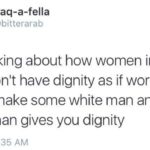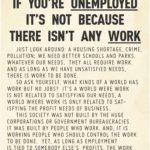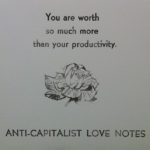capitalism
mom: I’m tired of you playing those violent video games.
me: but mom, this is Monopoly.
mom: CAPITALISM IS VIOLENCE
i love commodity fetishism. discuss in the context of fanfiction
Standard“Wow, you sure have a thing for your wand,” said Draco, a strand of crunch, gelled hair slipping down over his pinched, smug face. “Guess you have a real commodity fetishism thing going on there.”
Hermione just stared back at him, trying to figure out if this was an awkward sexual come-on or just him being Flat Wrong. “Do you…” she said, hesitatingly, “Do you even know what commodity fetishism is?”
“Of course, I do. I’ve read Das Kapital.” This was a lie. Draco had once overhead two Muggle grad students talking about Das Kapital. “It’s when you, like, really love commodities, and…”
“Yeah no,” said Hermione, interrupting him midstream. “Commodity fetishism describes one of the forms of alienation that capitalism produces, wherein, in the eyes of the public, products become detached from the circumstances of their production. Commodity fetishism is saying that food comes from the supermarket.”
“What’s a super…”
“Ok, it’s like saying Eye of Newt comes from Diagon Alley, when in truth, newt’s eyes are harvested by hand by workers but then taken away and sold at a store (at a higher price than many of those workers can afford). Fetishism suppresses that production history so that you don’t have to think about the workers.”
“Wait, but what does that have to do with sex?” Draco said this softly, almost as if he hadn’t intended to say it at all.
“Sex?” Hermione overpronounced the word and watched his face turn pink. “It has nothing to do with sex.”
“But…”
“The word ‘fetish’ refers to the attribution of mystical qualities to an inanimate object, such that the object acquires symbolic meaning that is totally separate from its original intended use. ‘Fetish’ often refers to items that are given religious meaning, but Freud also used the term to describe the direction of sexual desire toward inanimate objects and non-genital body parts.”
Draco looked blank.
“Part of the reason why what you said is so wrong is because wands are hand-made by Ollivander himself and, incidentally, are not commodities. And based on J.K. Rowling’s work, as far as we know, wands are not subject to any kind of market. Each wand is magically paired to a wizard and is never really subject to re-sale. Rowling doesn’t tell us how they are priced, but we have to assume that the price of each wand is the same or that cost is not a factor in how a wizard chooses their wand. Wands belong to a traditional, pre-capitalist (not to mention magical) mode of production, and they are not subject to market forces like supply and demand.”
“Who is ‘Rowling.’”
“Rowling is the creator of the universe in which this fanfiction is written.”
“Fa…fan…”
“Fan-fiction is an interesting case because it is, essentially, the creation of non-marketable works on the back of a commodified story (although sometimes these works do get sold and become commodities themselves). Whether or not fetishism applies in this case is kind of tough to answer. Honestly, I’d have to go do some digging on JSTOR to see if someone has made this argument before, but Hogwarts doesn’t a subscription to the database. Or internet access for that matter.”
Draco’s head started to hurt, as if it Hagrid had just split it open with the blunt side of an axe. He turned to Goyle and just kind of waved toward the Slytherin common room. Hermione watched them go, counting the days til she could get back to London and run to the University library to look up Marxist analyses of fan culture. But then again, she really needed to get back to studying for her Potions exam.
you are now my favorite follow of all time
@stormingtheivory and @tobermoriansass I feel like this is your thing very much so.
I feel like I understand commodity fetishism way better now, which is probably proof positive that I’m even more terrible than that dude from yesterday ever imagined lol
now someone please do one of these with object oriented ontology so I can figure out what the hell is going on there
When u work full time but it’s a minimum wage job so you can’t afford rent and food so you have to steal to eat.you have no way to save money to get out of the cycle. And you can’t enroll in school because you are broke , and even if you took out a loan you still have to work full time to pay rent. And your family is broke and then your dad gets demoted at work so they are even more broke now and you worry about them affording food and bills.
Get. Another. Job.
so much privilege, so little rationality
Lol. That’s the libertarian solution to poverty? “Just work TWO full time jobs”?
“Just spend the vast majority of your waking hours at work.”
“Just give up every waking moment of your life to wage slavery”
“What do you mean you need to sleep? That’s commie talk, you pinko.”
Let’s break it down. There’s 168 hours in a week, 24 hours a day, seven days. You typically spend 8 hours a day asleep, so you have about 168 – 56, for 112 waking hours a week, If you spent 80 hours a week working (which would be two full-time jobs, you’d have 32 waking hours a week leftover, which is about 4 and a half hours a day. 4.5 hours to drive to work, from work, oh and also between your two different jobs, let’s be generous and say that only takes an hour out of your day, you’re down to 3.5 waking hours a day for eating, bathing, taking care of your home and your family, doing chores and errands, recreation, etc, including on weekend days.
But if these jobs are normal full-time jobs, you only work Monday-Friday, which would just flat out not work, you’d have to spend 16 hours a day at work, meaning your commutes and getting ready in the morning would both cut into your eight hours a day of sleep. This would be a work regime more strenuous than almost any in history.
casual reminder: this isn’t a hypothetical either but reality for working class people all over the US.
Fast food workers in NY just won a $15/hr wage.
I’m a paramedic. My job requires a broad set of skills: interpersonal, medical, and technical skills, as well as the crucial skill of performing under pressure. I often make decisions on my own, in seconds, under chaotic circumstances, that impact people’s health and lives. I make $15/hr.
And these burger flippers think they deserve as much as me?
Good for them.
Look, if any job is going to take up someone’s life, it deserves a living wage. If a job exists and you have to hire someone to do it, they deserve a living wage. End of story. There’s a lot of talk going around my workplace along the lines of, “These guys with no education and no skills think they deserve as much as us? Fuck those guys.” And elsewhere on FB: “I’m a licensed electrician, I make $13/hr, fuck these burger flippers.”
And that’s exactly what the bosses want! They want us fighting over who has the bigger pile of crumbs so we don’t realize they made off with almost the whole damn cake. Why are you angry about fast food workers making two bucks more an hour when your CEO makes four hundred TIMES what you do? It’s in the bosses’ interests to keep your anger directed downward, at the poor people who are just trying to get by, like you, rather than at the rich assholes who consume almost everything we produce and give next to nothing for it.
My company, as they’re so fond of telling us in boosterist emails, cleared 1.3 billion dollars last year. They expect guys supporting families on 26-27k/year to applaud that. And that’s to say nothing of the techs and janitors and cashiers and bed pushers who make even less than us, but are as absolutely crucial to making a hospital work as the fucking CEO or the neurosurgeons. Can they pay us more? Absolutely. But why would they? No one’s making them.
The workers in NY *made* them. They fought for and won a living wage. So how incredibly petty and counterproductive is it to fuss that their pile of crumbs is bigger than ours? Put that energy elsewhere. Organize. Fight. Win.
here’s the deal with self care, for me:
pleasure, in the fun late-capitalism hellhole of present-day america, is treated like a luxury. it’s expensive. it’s frivolous. it’s guilty. if we want to eat ice cream out of the carton and be socially acceptable at the same time, we’d better have earned that ice cream. maybe by like running a marathon or getting dumped by an asshole. if we’re going to duck into the corner store and buy fresh flowers, it’s because we’ve had a hard week, not because flowers are nice. we can take a day off work, but only if we’re sick. we have to suffer before we’re allowed extra kindness.
in this equation pleasure is optional (irresponsible, even), except when it’s a balm for suffering.
however! we need pleasure to live. a life without nice feelings in it is like a diet with no vitamins in it. it’ll make you sick and eventually it’ll kill you. we know this because people with depression stop feeling pleasure, and they often kill themselves. left untreated, depression is a fatal disease.
pleasure is not optional. pleasure is not a luxury. without it, we die. that is literally the opposite of a luxury.
because pleasure is treated like a luxury, and priced accordingly, it is fucking hard to get. it’s hard to take time to relax and see loved ones when corporations aren’t required to offer paid vacation. it’s hard to buy that special face scrub or art print or pretty yarn when it costs $35 and student loans are breathing down your neck. so pleasure gets saved up for when things are really bad. pleasure gets budgeted. pleasure, once again, becomes something we have to earn by abstaining and hurting and gritting our teeth.
do this to people long enough and pleasure becomes potently associated with guilt. this thing we need desperately to stay alive is suddenly something we can’t seek out without looking over our shoulder and wondering if we’re allowed to have it.
that’s why it’s so important that we talk about self care, and tell ourselves and each other that it is okay to do things that feel good. it is necessary to do things that feel good. we have to uncouple suffering and pleasure, because the idea that we have to earn feeling good by first feeling bad is monstrous and wrong.
take care of yourselves, darlings. don’t feel bad about it.
Whole Foods is a point of entry into a new version of American whiteness, one which leans on a pseudo recognition of diversity through sanitized food presentation. It offers a new order of “otherness” in which the other is a pleasant-looking piece of food, totally safe, and with a pedigree. Within the Whole Foods’ bubble we are turned instantly sophisticated, and the store becomes the place where we can self-indulge in notions of cosmopolitan openness to world products and political struggles. To buy an avocado “with a background” ends up, dangerously, filling the space of our urge for political awareness. The store did the math for us, as well as all the thinking, so we can “shop with confidence” and just relax.
The whole process does something rather particular: It creates the illusion of an “independent” understanding within the larger implications of corporate intervention in defining a food’s background. In establishing a perimeter of commercial values based on social responsibility, Whole Foods depoliticizes us. Worse, for those already sinking into the hybrid life of a world without politics, it offers a parachute, a sort of immunity: “I shop here so, by extension, I know a thing or two about social awareness.”
Whole Foods unavoidably widens the gap between people who have everything and people who have nothing: How can super expensive foods that look like an invention of Edward Weston’s camera – that the majority of the world cannot afford, or would laugh about – be synonymous with social responsibility? This is truly a modern enigma.
The recent situation with quinoa, the “hot” and “trendy” new grain that we are suddenly unable to live without – and without which we are suddenly missing essential nutrients to keep us alive – is case in point. Paola Flores, filing for the AP from La Paz, Bolivia, reports that “[t]he scramble to grow more (quinoa) is prompting Bolivian farmers to abandon traditional land management practices, endangering the fragile ecosystem of the arid highlands, agronomists say.” A quinoa emergency, then, at the bulk bins. A separate exposé published in the Guardian goes even further: “[T]here is an unpalatable truth to face for those of us with a bag of quinoa in the larder. The appetite of countries such as ours for this grain has pushed up prices to such an extent that poorer people in Peru and Bolivia, for whom it was once a nourishing staple food, can no longer afford to eat it. Imported junk food is cheaper. In Lima, quinoa now costs more than chicken.” Whether we blame vegans or hipsters or the organic food movement or a lack of appropriate trade regulations, the troubling truth about quinoa represents that repetitive drama between the West and rest in which our voracious consumption depletes yet another land and another people.
Whole Foods widens the gaps, and it does so in the most subtle and displacing manner, giving us an environment (the actually sanitized, spotless physical space) that is the embodiment of an elite (yet perceived as “open,” especially through the chain’s less pricey “360” product line) that finds itself at home within a soulless, sterilized experiences. The notion of gentrification has been surpassed, attaining the space of a perennial state of mind. This is where even an apple turns into an object/jewelry of desire, not of need, or at least of normality. In that sense, Whole Foods is simply the last piece in the long, familiar chain of shifting perceptions in neo-capitalistic societies that exploded after the Second World War, in which the creation and multiplication of desires is central to the self-preservation of the system.


